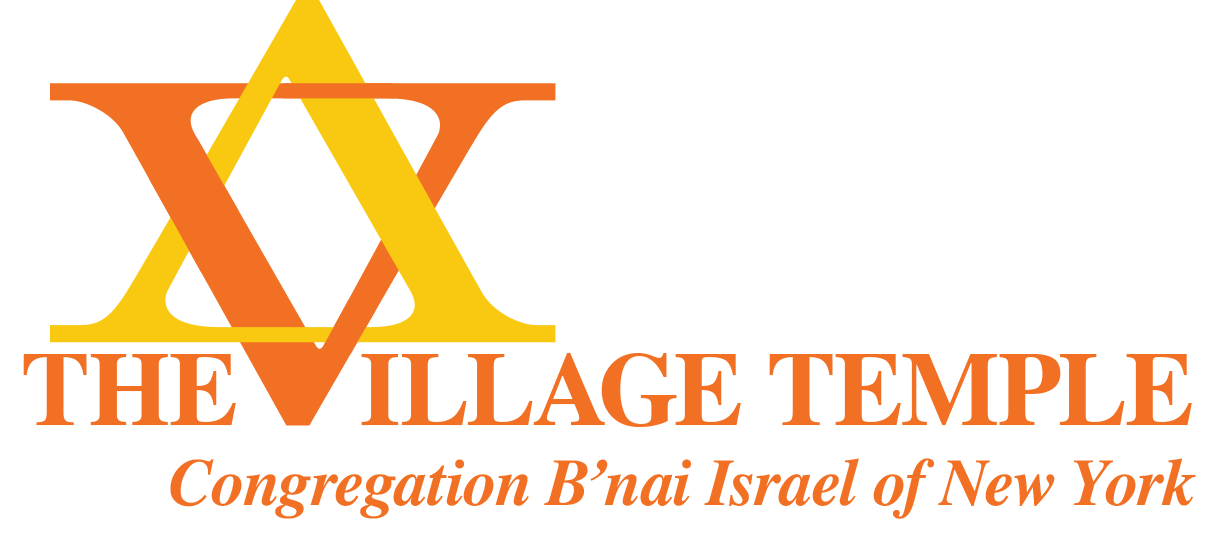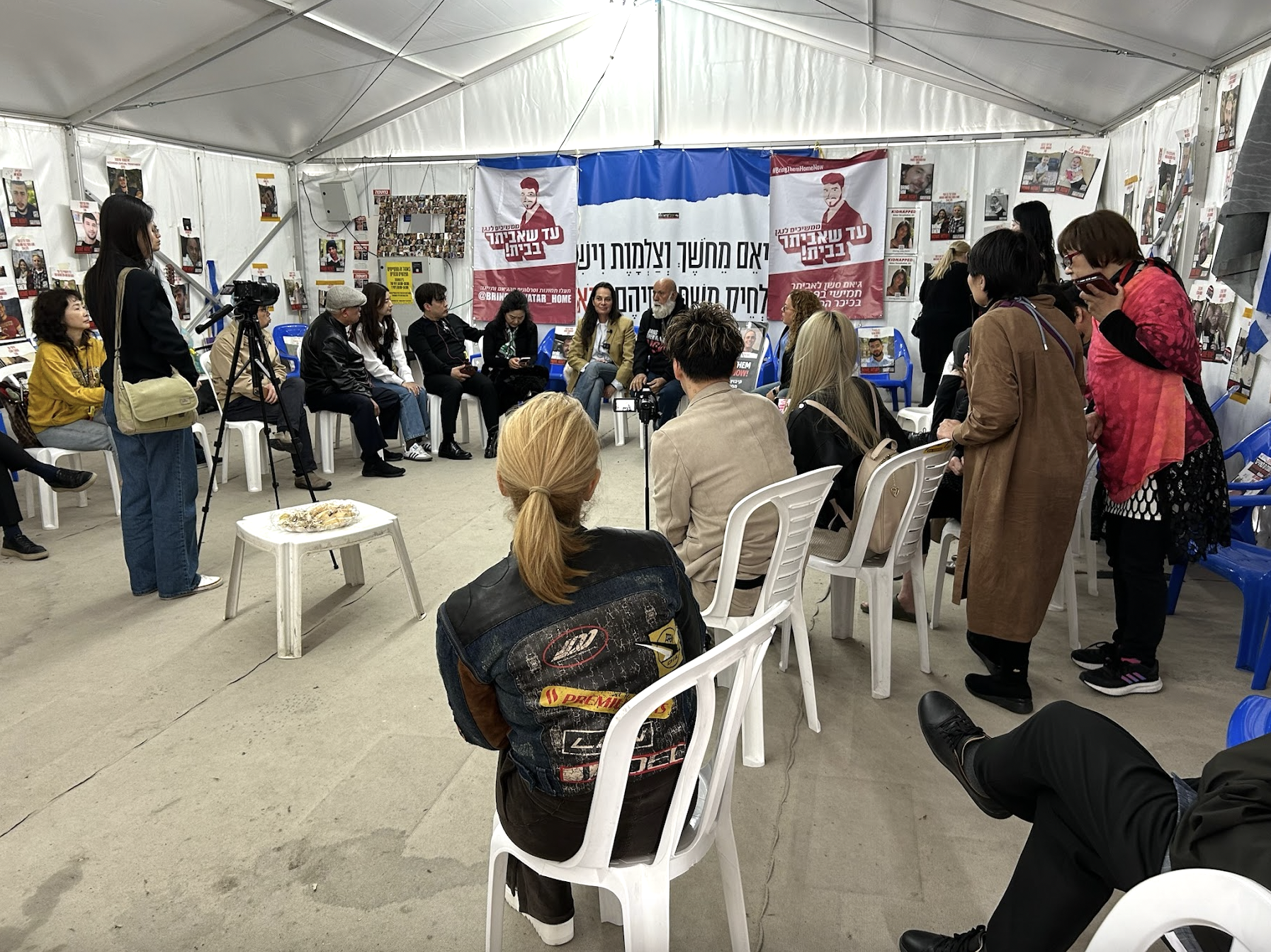Day 4: Monday, March 25- Jill Wilkinson
Shalom! When we set out on this trip, we had many goals, one of which was to bear witness to the atrocities of October 7th - today was that day.
As with each day, we start off first, with a rundown of the morning news about events shaping Israel. First and foremost is status of the hostage negotiations. Latest as of today is that Israel is willing to free ~800 captives, a painful price as many are considered ‘heavy’ inmates - the negotiations continue as it can take days for a message to get to Hamas given the complex communication channel. Also in the news is the Haredi draft bill - the Haredis have been exempt from the IDF draft due to their political influence in government. There’s a mixed feeling in government - while this issue had been on the table prior to Oct. 7th, it’s been exacerbated as the IDF needs more people to fight the war. A handful of Haredis have volunteered to join since Oct 7th. The army is considered the best melting pot to integrate Haredis into Israeli society. The high court determined that the issue was to be resolved this week but the decision has now been delayed to July. And on Rafah, VP Harris commented that it would be a mistake for Israel to go into Rafah. There’s tension in Israel between the perspectives on whether they should or should not go in. With pressure from the international community to not go in, Israel is risking being left on its own. The people we’ve met with this week, fear this very issue - that they will be isolated from the rest of the world.
Our first stop this morning - a Bat Mitzvah! There are two families on our trip who each brought their teenagers - one became a Bat Mitzvah today and we celebrated this joyous occasion with them in the Land of Israel! Not only that, but the ceremony was held on a biblically significant site. We drove to Tel Azaka which is the site where David told Saul he would take on Goliath. As we drove to the site we passed the biblical town of Bet Shemesh which we were told is a fast growing ultra orthodox town - apparently it’s joked that with all of the construction going on in Israel the national bird is ‘the crane’. The ceremony was beautiful - admittedly, I became rather emotional during the Bar’ch prayer - standing atop a mountain in Israel chanting our traditional prayers really struck a chord with me.
We were scheduled to stop in Sderot but plans shifted and we grabbed lunch and then headed down to Kibbutz Re’im. Our tour guide (Jeremy) provides us with background and history along the way to each destination - he shared with us an ‘abridged’ timeline regarding Gaza control (1949 following the war, Egypt controlled Gaza; 1967 Israel takes control of Gaza and Sinai; 1979 at the Camp David Accords Israel withdrew from Sinai and because Egypt did not want Gaza, Israel kept Gaza; 2005, PM Sharon pulled Israelis (roughly 8,000) out of Gaza; 2007-2008, first rockets starting coming over.)
As we turned onto the road where we had all seen initial reports of cars and bodies being found (we’ve seen all of the images) I had an uneasy feeling about where we were and what we were about to see and hear. We were passing bus shelters that had been riddled with bullets but were now painted over. Our tour guide recounted that the 3 Kibbutzim most impacted were Kfar Aza, Nir Oz and Be’eri and the fact that he and his wife, since Oct. 7th have been helping the families that have been displaced. What we’ve consistently heard through the people we’ve spoken with is that no one knew what was going on in those early hours, days, weeks, and it took weeks before anyone could even get a confirmation about whether a loved one was killed or kidnapped. Jeremy talked about the baby twins that were orphaned that day (that we’ve all heard about) - they live near him now - his wife looks after many of these displaced families. What’s been made crystal clear to all of us is how the Israelis have banded together to figure out how to help one another.
The Kibbutz we visited was not one of the three, but rather Kibbutz Re’im. Once we entered the Kibbutz, the entire bus fell eerily quiet - not one person was speaking as we rolled through the security gates. We were met by two members of the Kibbutz - Imri Bunim and Reut Karp. No sooner had our talk with Imri started than rockets were launched from Gaza - two were intercepted by the Iron Dome and the rest fell on open space - shocking to all of us as this is what we read and hear about through the news, but here we were, witnessing it and experiencing the fear ourselves in real life. Even Imri and Reut were surprised since they hadn’t seen a rocket launched there since January. Imri is part of the Rapid Response Team and only he and about 6 members of the community quickly became responsible for defending the roughly 170 families of the Kibbutz and taking on what was estimated to be more than 80 terrorists attacking them. He took us on a walk through the grounds and explained minute by minute how the events of the day unfolded, where the terrorists were coming from, the messages he was getting from his friends who were all helping - we witnessed the devastation of houses, and listened - listened as he shared the details of the day, the hours and hours - it’s simply inconceivable how this all could have happened. He pointed out where people were running from the Nova Festival to the shelters situated right outside the kibbutz. What amazed me was how he and his fellow kibbutz members were able to think as strategically as they did, which he explained along the visit, each step they took, where they were firing from, how they managed to outsmart the terrorists. When Imri finished we then met with Reut - she was not in the Kibbutz at the time but her kids were with her husband and his girlfriend (she and her husband had no longer been together) - when she first got word of the events unfolding, her husband assured her he and the kids were in the safe room. She then received a text from her daughter that her husband and his girlfriend had been killed outside of the safe room trying to fight the terrorists with an axe and a knife - both were murdered and lay where her daughter could see them - Reut then proceeded to stay on the phone with her daughter for hours until she was able to get a friend to come to the house to stay with them until the IDF would come. She played back for us a portion of the conversation she was having with her daughter, keeping her daughter calm - how she herself could stay so calm and strong was beyond comprehension. She also took us inside so we could see where the kids were situated - and we saw what the terrorists scribbled on the walls in lipstick after killing the adults - the message they wrote was ‘we don’t kill children’ which was ironic considering we know the horrific stories of what happened to so many children that day.
As we walked toward the bus, I was most struck by the sounds of birds chirping, a lawnmower, seeing the oranges and fruits on the trees. What a peaceful place - it was hard to imagine all of the carnage that happened in those hours starting on October 7th.
Our next stop was the site of the Nova Festival. As we pulled into the open space, and descended from the bus, we saw the rows and rows of trees that had already been planted in honor of those that were murdered that day. Additionally, a memorial had been set up for those that perished there and we had an opportunity to walk around and pay our respects. The Rabbi handed us rocks she had taken from Tel Azaka so that we could place them on the memorials there. There were specific places on the grounds with pictures and personal memorials at the locations where festival goers had been found. Heartbreaking doesn’t even begin to explain the enormity of the devastation that occurred there that day. We had the honor of having a gentleman named Rami Davidian who has become well known all over Israel for his story of extreme heroism and we were fortunate that he took the time to speak with our group - he too, recounted what transpired from the minute he awoke that morning. A friend contacted him to rescue his daughter from the festival- he, like everyone else we’ve spoken with , did not know in those early hours what was going on - when he first set out, he found two abandoned motorcycles on the ground and then as the day unfolded he quickly knew they were under attack and had to take matters into his own hands. He talked about the trips he was taking into the festival, how he, like Imri, had to think strategically about each step he was taking, timing when the terrorists were circling and calculating how long it would take for the groups he was rescuing to make it out to him - he would then drive groups of people (in his Toyota Corolla which only seated 5 people) and drove them to his home - at one point he had 70 people in his house and then started calling his friends to help take in the festival survivors. He described how during one of his rescues, he spoke Arabic to the terrorists thereby tricking them into thinking he was one of them, and then brought out the concert goer. Families were getting his phone number, and, desperate, were giving him names and descriptions of their children - internet had been cut off during the day which made it difficult to communicate - he worked round the clock through the night and after 30 hours and 750 people saved, returned home. What he described he saw, to us, the bodies of naked girls tied to trees, body parts on the ground, will never ever leave my mind - each body he found he quickly said the Shema and kept moving.
As I write this, I recognize I am still processing all of what we heard today - we were fortunate to have these people meet with us to share their stories - their stories need to be told. The country is in trauma - significant trauma - the people that spoke with us today are broken, suffering psychologically; this was evident in the manner in which they shared their stories.
There is much more I could recount from our visits today, but know that we will have an opportunity to share more with all of you when we return.
On our way back to Tel Aviv, we later found out that the reason our trip to Sderot was canceled today was that the town was actually closed today due to a security threat.
Upon our return to Tel Aviv, a handful of us went to Yafo for dinner - an exceptionally beautiful and peaceful end to an extraordinarily powerful and moving day.



